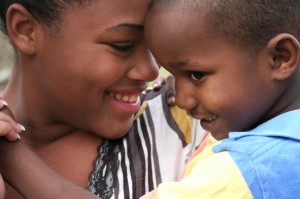6 Things Kids Need From Adults to Feel Valued
 Kids are a rather interesting group! They perceive the world entirely differently than adults do and their expectations far outweigh the typical adult’s. Their understanding of themselves in this big world makes them susceptible to a host of emotions, some good and some bad.
Kids are a rather interesting group! They perceive the world entirely differently than adults do and their expectations far outweigh the typical adult’s. Their understanding of themselves in this big world makes them susceptible to a host of emotions, some good and some bad.
Because children have not fully developed their persona, skills, and self-esteem, it is important that the adults in their world actively seek to increase their confidence. From this, kids will begin to feel valued and respected. When kids feel valued, loved, heard, and respected, they develop an identity based on these responses. Most children don’t demand much; they simply want to have a place in the world and in the lives of those they love. When my mother began integrating me into her adult world at the tender age of 9-years-old, I began to develop an awareness of life around me, who I was, and how I fit into the world. I also felt that I was less reactive to peer pressure. When I struggled with something, she was the one I went to. When I felt peer pressure, she was the trusted friend who offered wise input.
Kids need the adults in their lives to help them form a healthy identity and level of self-esteem. Here are 6 ways to help your child in this area of emotional development:
- Offer Companionship: This is the most straightforward tip, but sadly, many parents neglect this aspect of their relationship with their child. Time spent alone with your child is important because it builds respect, closeness, and relationship. As a result, your child will feel comfortable to come to you when they need you.
- Share Love: Kids need to know that they are loved by the adults in their lives. Even if a marriage or relationship is no longer workable, the child involved needs to feel assured that they are still loved and supported by both parents. Your child also needs to know that you love them unconditionally. Your son may not become a pro football player, but he is one of a kind! Children need non-judgmental, unconditional positive regard.
- Use Conversation: This may seem like a no brainer, but adults often feel that kids will not enjoy conversing with them. This is not true! Most kids enjoy speaking with adults because it gives them a sense of maturity. Conversing about world events, sports, hobbies, interests, what happened at school, etc. will open the door for your child to feel comfortable enough to come to you if they need advice or help.
- Set Boundaries: Even though companionship and conversation are necessary components, you also want your children to know that you are the adult in the household, raising them. You never want your kids to feel they are “on your level.” This is a tricky part of parenting: you want to offer structure and control so that your child feels secure but you want to support them by valuing and respecting them as a unique person. To get this balance right, you have to consider the personality of your child. Some kids need stricter guidance and boundaries, while others do well with more independence.
- Show Respect: Many parents believe that by not using profanity or speaking rudely to their children, they are treating them with respect. This is partially correct. But kids also need to be listened to by an adult who appreciates their input so they can feel that they “make sense.” When you converse with your child and in turn, listen to them, you are sending the message that you value and respect their mind.
- Develop a track record: Kids usually judge adults based on previous observations of character. Therefore, parents and other adults need to be consistent. Although children lack the sophisticated conceptualizations of the world that adults have, take the mind of the child seriously and consistently show respect for and appreciation of the developing individual that he or she is.
Give your kids your time, respect, and love. You can’t fail!
Tags: child development, emotional IQ, good parenting skills, kids, parent child communication, parenting advice, parenting tips








Leave a Reply